We include products in articles we think are useful for our readers. If you buy products or services through links on our website, we may earn a small commission.
The Science Linking Sugar and Heart Disease

The link between sugar and heart disease has been scientifically established since the 1960s, but only recently has it gained the attention it deserves.
The fact that most people are unaware of the links between sugar and heart disease is not a coincidence. This lacuna in dietary awareness is the result of a concerted effort on the part of the sugar and vegetable oil industries to unfairly–and unscientifically–deflect the blame from sugar to saturated fat.
In this article, we will explore the compelling evidence and scientific insights that reveal the links between consuming sugar and the development of heart disease. We’ll also touch on the ways the sugar industry attempted to hide these findings from the public eye.
Table of Contents
Blame Sugar, Not Fat
Since the 1960s, the blame for heart disease has been incorrectly assigned to saturated fat. The targeting of saturated fat can be attributed to powerful private interest groups representing the sugar and vegetable oil industries.
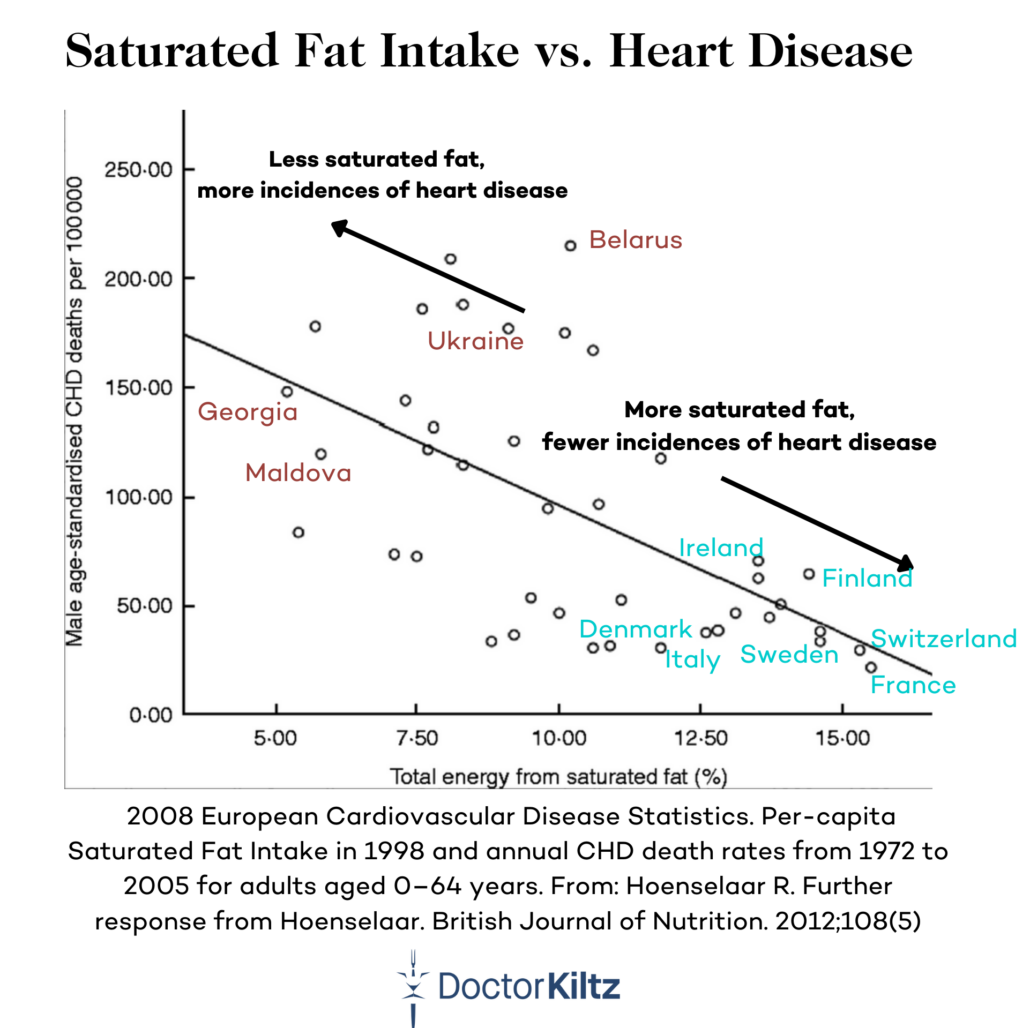
In 2016, this ploy by the Sugar Association–a communications wing of the U.S. sugar industry–was uncovered by a researcher at the University of California, San Francisco, and published in JAMA Internal Medicine.
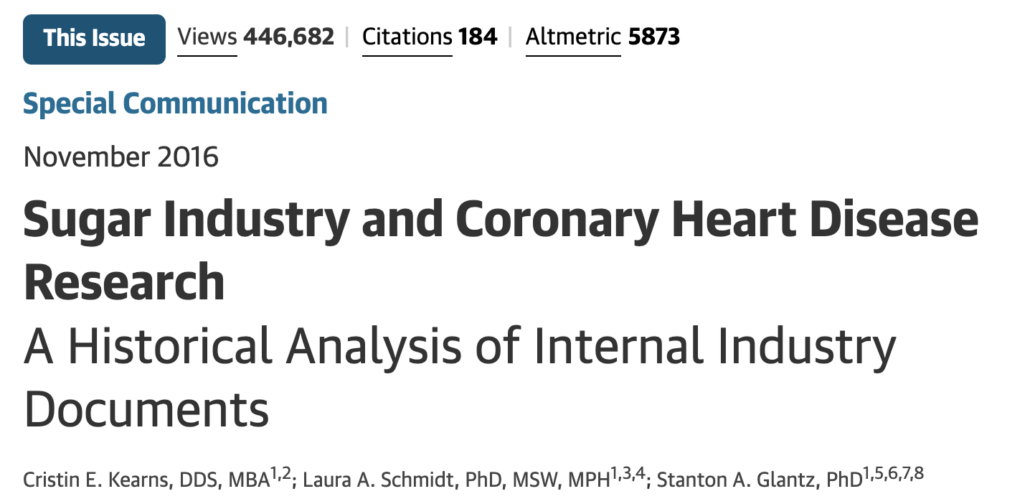
The article examines documents showing how the Sugar Association paid Harvard scientists to publish a review of research that was handpicked by the sugar industry and published in the widely respected New England Journal of Medicine. This research hid the link between sugar and heart disease and shifted the focus to saturated fat.
Though the sugar executives and researchers are no longer alive, their fraudulent science has had a lasting impact on global dietary guidelines that remain hard to escape to this day.
The outsize influence of these early studies is due in large part to the professional stature of the scientists who took part in the deception: Dr. Fredrick J. Stare, was the chairman of Harvard’s nutrition department. And fellow researcher D. Mark Hegsted would become the head of nutrition at the United States Department of Agriculture, where In 1977, he would be instrumental in drafting what would become the U.S. federal dietary guidelines.
The effects of these guidelines contributed to the low-fat craze of the 1980s and 90s. Following recommendations to cut fat while consuming three meals a day of naturally high-carb “plant-based” foods like grains and fruits, subjects the human body to chronically high amounts of sugar.
On average, Americans consume three pounds of sugar each week! The majority of which is hidden in plant-based products and processed foods. Low-fat food options such as tomato sauce, yogurt, and instant oatmeal can have as much sugar as candy and soda.
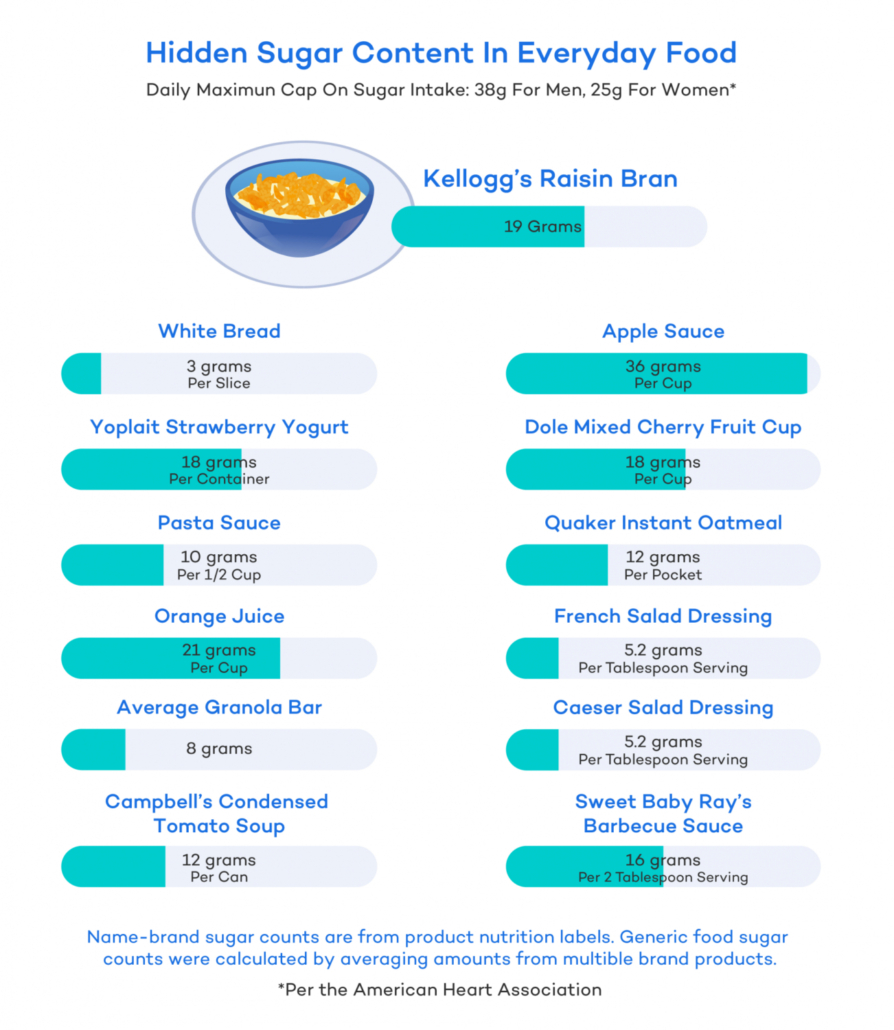
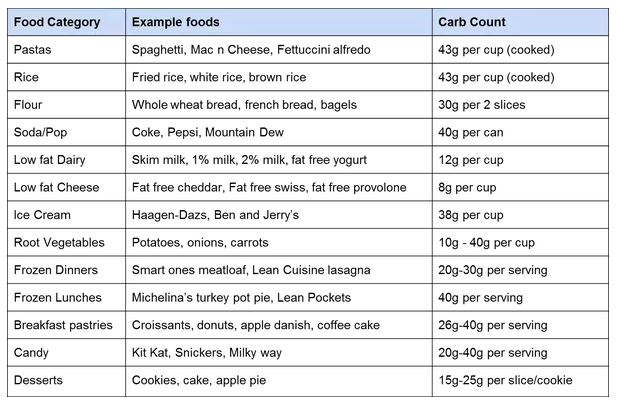
In a similar plot, pioneering science journalist Nina Tiecholz found that Proctor & Gamble, the company that owns the vegetable shortening brand, Crisco, funded the American Heart Association in a scheme to influence their recommendations to replace animal fat consumption with vegetable oils.
We now have numerous studies showing that vegetable oil actually increases the risk of heart disease. You can learn more about the deleterious role of vegetable oil for heart health here

This 2017 study titled “Saturated Fat does not Clog Arteries: coronary heart disease is a chronic inflammatory condition the risk of which can be effectively reduced from healthy lifestyle interventions” and published in the British Journal of Sports Medicine, thoroughly summarizes the current state of nutritional science with regards to the true causes of heart disease.
The authors of the study write:
- Coronary artery disease pathogenesis and treatment urgently require a paradigm shift. Despite popular belief among doctors and the public, the conceptual model of dietary saturated fat clogging a pipe is just plain wrong.
- A landmark systematic review and meta-analysis of observational studies showed no association between saturated fat consumption and (1) all-cause mortality, (2) coronary heart disease (CHD), (3) CHD mortality, (4) ischaemic stroke or (5) type 2 diabetes in healthy adults.
- Similarly, in the secondary prevention of CHD there is no benefit from reduced fat, including saturated fat, on myocardial infarction, cardiovascular or all-cause mortality.
- In an angiographic study of postmenopausal women with CHD, greater intake of saturated fat was associated with less progression of atherosclerosis, whereas carbohydrate and polyunsaturated fat intake were associated with greater progression.
The Science on Sugar and Heart Disease
Now that we’ve put the saturated fat heart disease link in the rearview mirror, let’s look at what the science on sugar and heart disease has to tell us.
Numerous studies have linked both added sugar and overall high-carb (total sugars from all sources, including grains, fruits, and vegetables) diets to an increased risk of developing heart disease.
It’s likely that the link between sugar and heart disease is the result of a cluster of factors, including increased inflammation, hormone imbalances, higher triglycerides, and higher blood pressure.

A large 2023 study published in the journal BMC Medicine found that diets higher in free sugars such as sugar added to processed foods and sodas, and found in fruit, fruit juice, and syrups increase the risk of heart disease and stroke.
Researchers examined data from over 110,000 people ages 37 to 73 in the United Kingdom, tracking their health outcomes over nine years.
The results suggested that every 5% increase in the share of a person’s total energy intake that comes from free sugars correlated with a 6% higher risk of heart disease and a 10% higher risk of stroke.
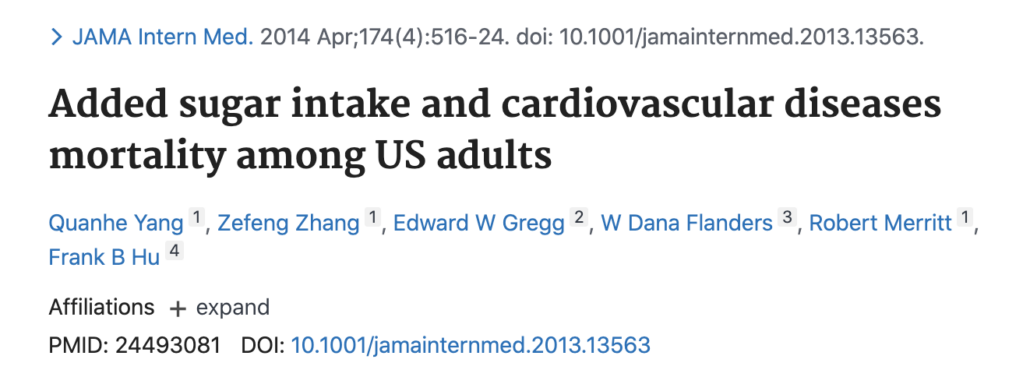
A 2014 study of over 30,000 participants found that people who consumed roughly twice as much sugar as those who got less than 10% of their daily calories from added sugar had a 38% greater chance of dying from heart disease.
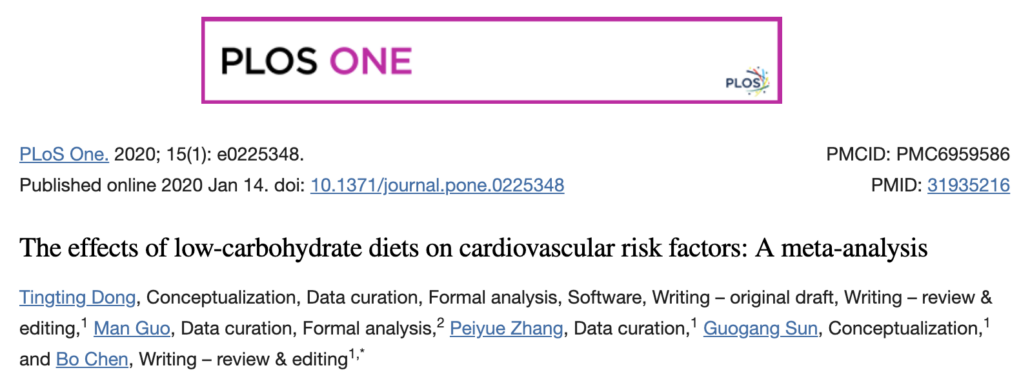
A 2020 meta-analysis (the gold standard of nutritional research) comparing high-carb and low-carb diets with regard to their effects on heart disease risk found that “diets with high levels of carbohydrates, especially refined or high glycemic index carbohydrates…appear to be associated with hypertension, coronary heart disease, obesity, type 2 diabetes, metabolic syndrome and increased risk of mortality.
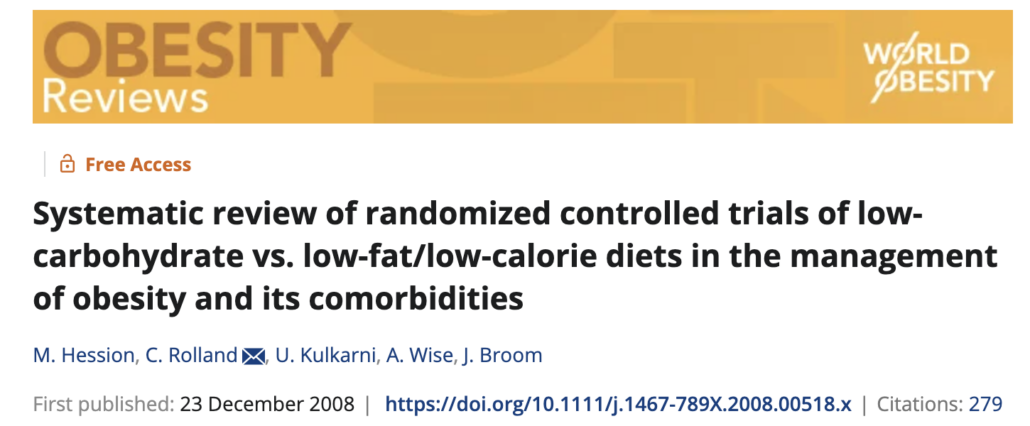
A 2008 systematic review of randomized control trials comparing low-carb vs. low-fat diets found significantly better cardiovascular health outcomes in addition to improved weight loss and blood sugar regulation on the low-carb diet.
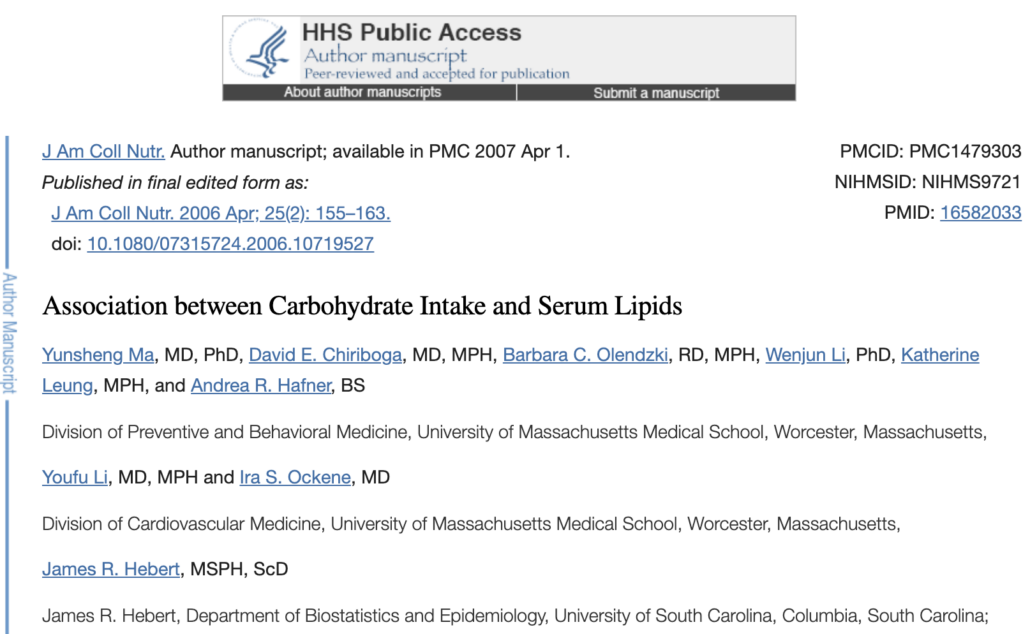
This 2006 study found that consuming more than 60% of calories in the form of carbohydrates decreases “good” HDL cholesterol and increases triglycerides. Together these factors can increase the risk of heart disease.
Sugar Fuels Inflammation that Drives Heart Disease
In light of recent studies that link inflammation with heart disease, it is fair to look at how sugar drives inflammation as a risk factor for cardiovascular disease.
A study comparing the effects of high-carb vs low-carb diets on obese and overweight women found that consuming the high-carb diet was associated with increased markers of inflammation.
Another study comparing the effects of a low-carb vs. low-fat diet on participants with type 2 diabetes found that even though weight loss was similar for both groups, the low-carb diet produced significant reductions in inflammation.
A study looking specifically at the effects of low to moderately-sweetened beverages on healthy young men found that consuming only one 375 ML soda (40 grams of sugar) per day significantly increased inflammatory markers, insulin resistance, LDL “bad” cholesterol, and caused weight gain.
These are just a few of numerous studies linking the consumption of added sugars and high-carb foods to increased inflammation.
Sugar and Heart Disease: The Bottom Line
For decades, corrupted research downplaying the links between sugar and heart disease has influenced national dietary toward low-fat recommendations with disastrous effects.
Recent research has revealed that consuming a diet high in carbohydrates and added sugars increases inflammation and insulin resistance, decreases good cholesterol, increases bad cholesterol, and increases triglycerides. All of these effects of sugar can contribute to a significantly increased risk of heart disease.
To reclaim your heart health we recommend eliminating all processed foods, added sugars, grains, and vegetable oils. Then, focus your diet around whole, nutrient-dense, ancestrally aligned foods.
















